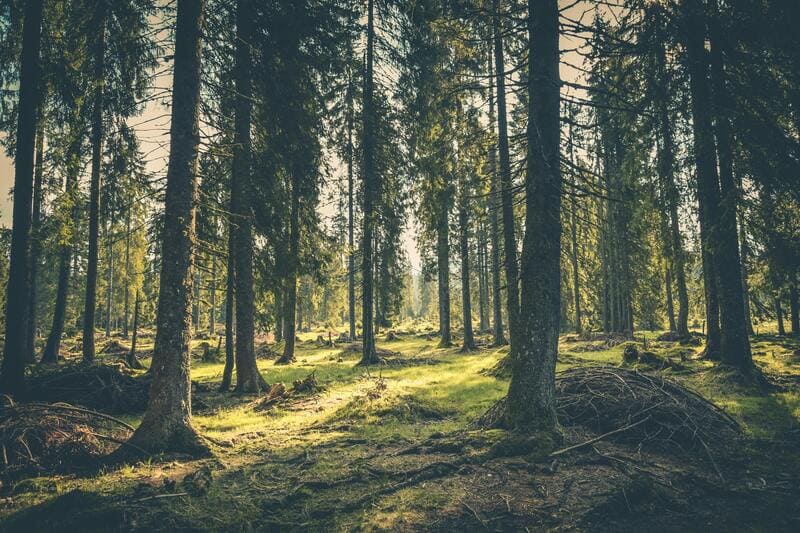Forests support life in ways you might not expect. From filtering the air to shaping entire ecosystems, these complex ecosystems are crucial for our survival. They don’t just provide us with resources like food and medicine; they play an even more profound role in regulating water cycles, preventing soil erosion, and balancing our climate. But what exactly makes them so significant? This article will go over everything you need to know, including the different roles forests play.
The Ecological Role Of Forests
Forests are the most biologically diverse ecosystems on the planet and are home to over eighty percent of terrestrial species. They provide essential habitats for numerous plants, animals, and insects, many of which aren’t found anywhere else on the planet. The layers within woods, including canopies, understories, and floors, are what allow various species to thrive.
Trees are vital when it comes to regulating climate. Through photosynthesis, trees absorb carbon dioxide (CO2) and release oxygen. This helps fight climate change because if trees didn’t store large amounts of carbon, said carbon would otherwise be released into the atmosphere, contributing to global warming. It’s estimated that these ecosystems absorb about 2.6 billion tons of CO2 every single year.
Beyond air purification, woods also regulate temperature at local and global levels. Their canopies provide shade, reducing surface temperatures in surrounding areas. Globally, they help moderate climate by absorbing solar radiation and preventing extreme temperature fluctuations.
These biomes play a big part in the water cycle as well. The tree canopies slow down rainfall, which allows water to properly penetrate the soil and replenish the underground rock/sediment stores known as aquifers. Aquifers provide water to humans, animals, and the ecosystem itself. Additionally, trees help disperse and absorb large amounts of rainfall. This helps reduce runoff that could otherwise cause flooding. Tree root systems stabilize land, reducing the risk of landslides.
Forests’ Economic And Social Contributions
1.6 billion people worldwide rely on forests for food, shelter, and medicine. Communities that heavily rely on the forest for their survival have been known to participate in and encourage sustainable practices. This is important because these communities not only help preserve the woods but also contribute to their ability to thrive.
These biomes are essential to global industries as well. The furniture, paper, and construction industries heavily rely on timber, while non-timber products like rubber, resins, and essential oils play a big part in pharmaceuticals and cosmetics. To put it in perspective for you, these industries contribute over $250 billion to the global economy each year.
These biomes hold deep spiritual and cultural significance for so many people. You may have heard of practices like Shinrin-yoku, also known as “forest bathing,” which is a practice of spending time in nature and connecting to it through your senses. Its increase in popularity in recent years shows how even those in modern society find that the woods offer peace and healing.
The Threat Of Deforestation
Unfortunately, deforestation continues at an alarming rate. According to Earth.org, millions of acres are lost every single year. This rapid loss leads to significant consequences, including the loss of biodiversity and the release of vast amounts of stored carbon.
When forests are destroyed, indigenous peoples lose both their resources and their homes and their role as protectors is diminished. The effects of this destruction extend far beyond local impacts. By removing these biomes, we disrupt the balance that helps regulate global temperatures. Without these ecosystems acting as carbon sinks, or things that absorbs more carbon from the atmosphere than they release, the amount of greenhouse gases in the atmosphere increases.
Preserving Forests For Future Generations
Sustainable management ensures the long-term health of these ecosystems. Practices like selective logging, which removes specific trees while leaving the surrounding flora and fauna intact, and reforestation, where trees are replanted in deforested areas, are crucial. Global efforts aim to reduce deforestation and encourage reforestation on a large scale, promoting sustainable forestry practices worldwide.
Individuals can play a key role by supporting sustainable products, reducing paper and wood consumption, and donating to reforestation projects. Community-led conservation efforts are equally important. Global awareness, combined with strong policy action, ensures that these locations are protected and restored for future generations. By acting locally and advocating for sustainable practices, people can help safeguard these complex ecosystems.
Wrapping Up
Forests are crucial for maintaining the very delicate balance of Earth’s ecosystems. They support biodiversity, regulate the climate, and provide essential resources for billions of people all over the planet. By promoting sustainable practices and taking action, we can ensure that these ecosystems remain a foundation of ecological and economic health for future generations.









